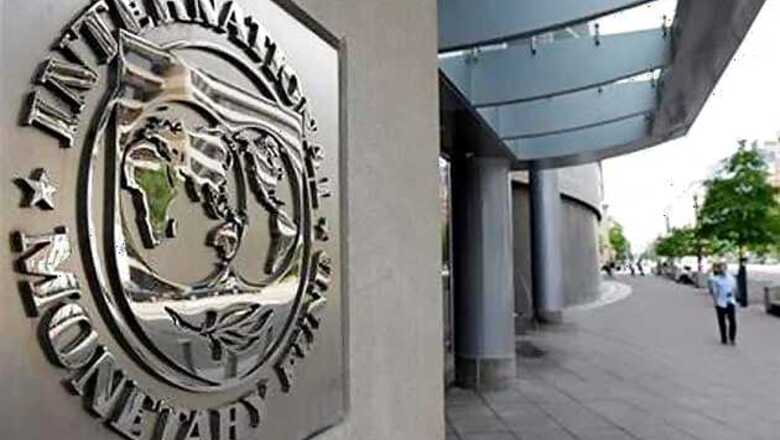
views
Washington: Nepal should keep inflation close to levels in India so that the country's competitiveness is not lost by way of the "inflation wedge", an IMF study says. Nepal's economy was hit by a massive earthquake early this year and is facing unrest and disruptions to economic activity owing to protests by minority groups over the new Constitution.
According to IMF, Nepal's economic growth slowed to 3.4 per cent in 2014-15, down from 5.5 per cent in 2013-14. While losses in agricultural production and damage to transport systems pushed up prices, raising inflation to about 7 per cent, said Geert Almekinders, who led the IMF team to Nepal to hold annual discussions on September 20 to October 1.
According to the study, as economic activity recovers from the earthquakes and reconstruction gains momentum, Nepal's growth is expected to gradually rebound to about 4.4 per cent in 2015-16 and around 5.4 per cent by 2016-17. Inflation is projected to rise to about 8.5 per cent over the next 12 months.
Meanwhile, in India, retail as well as wholesale price-based inflation dived to new lows in August on falling global commodity prices. India's consumer price index-based inflation eased to 3.66 per cent in August from 3.69 per cent the previous month while the one based on wholesale price index tumbled for the 10th straight month to (-)4.95 per cent compared with a provisional (-)4.05 per cent in July.
"Monetary policy should focus on supporting the exchange rate peg and containing inflation. As the economy recovers, the Nepal Rastra Bank (NRB) should aim to keep inflation close to that of India," IMF said. It further added that "bringing down inflation in Nepal is important in its own right and a means of ensuring that competitiveness is not lost via the inflation wedge".
IMF further noted that inflationary pressures could ease as agricultural production recovers and transportation infrastructure improves. Moreover, stepped-up foreign aid and higher inflows of remittances will further boost liquidity pressures in the financial system, necessitating active liquidity management to avoid excess inflation relative to India.
Since the promulgation of the new Constitution on September 20, Nepal's Terai region (the plain) has been on the boil. More than 40 people have died in southern and western Nepal in the protests. Madhesis, the Indian-origin inhabitants of the Terai plain, have opposed the Constitution, saying it does not protect their interests.

















Comments
0 comment